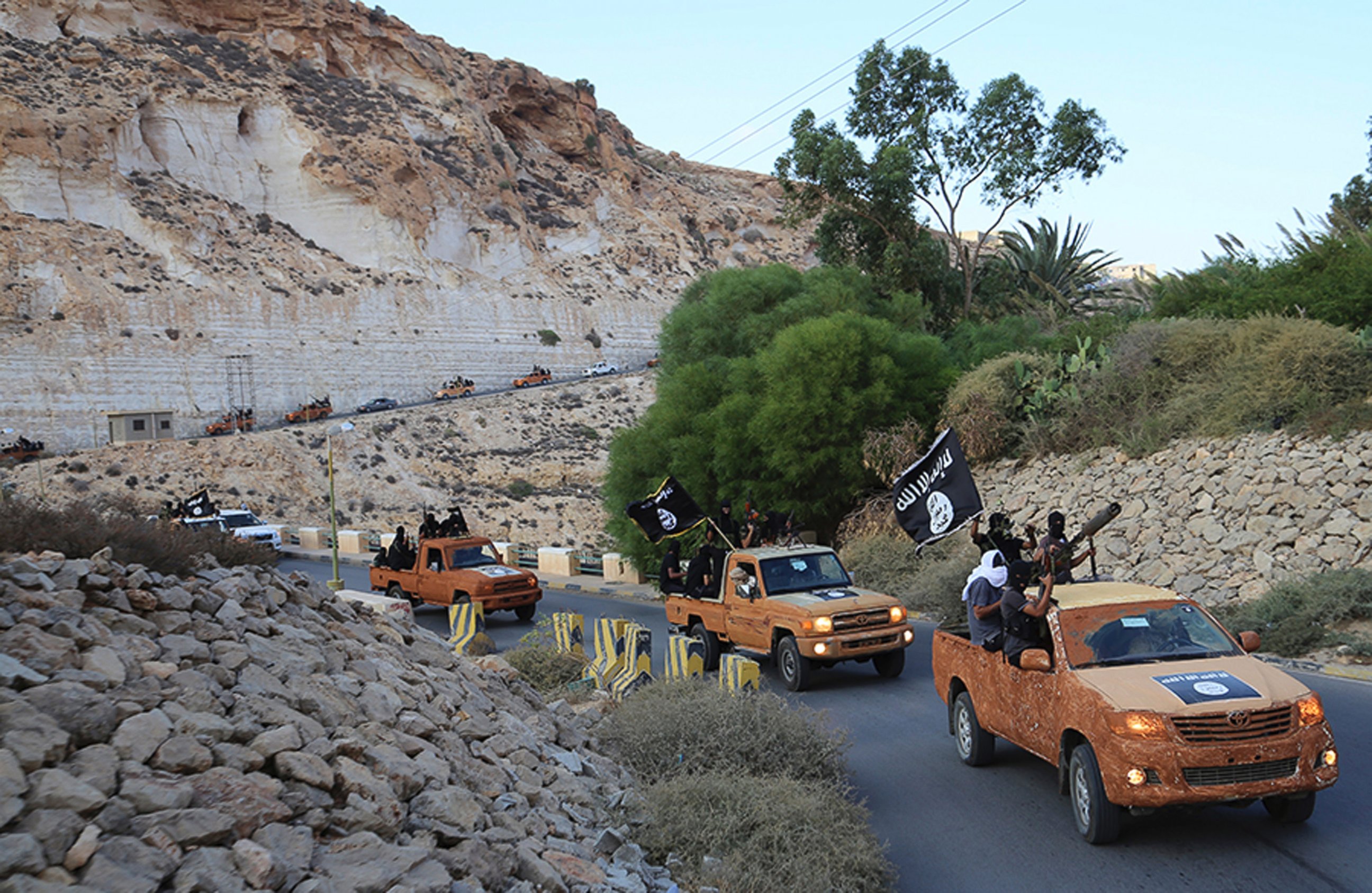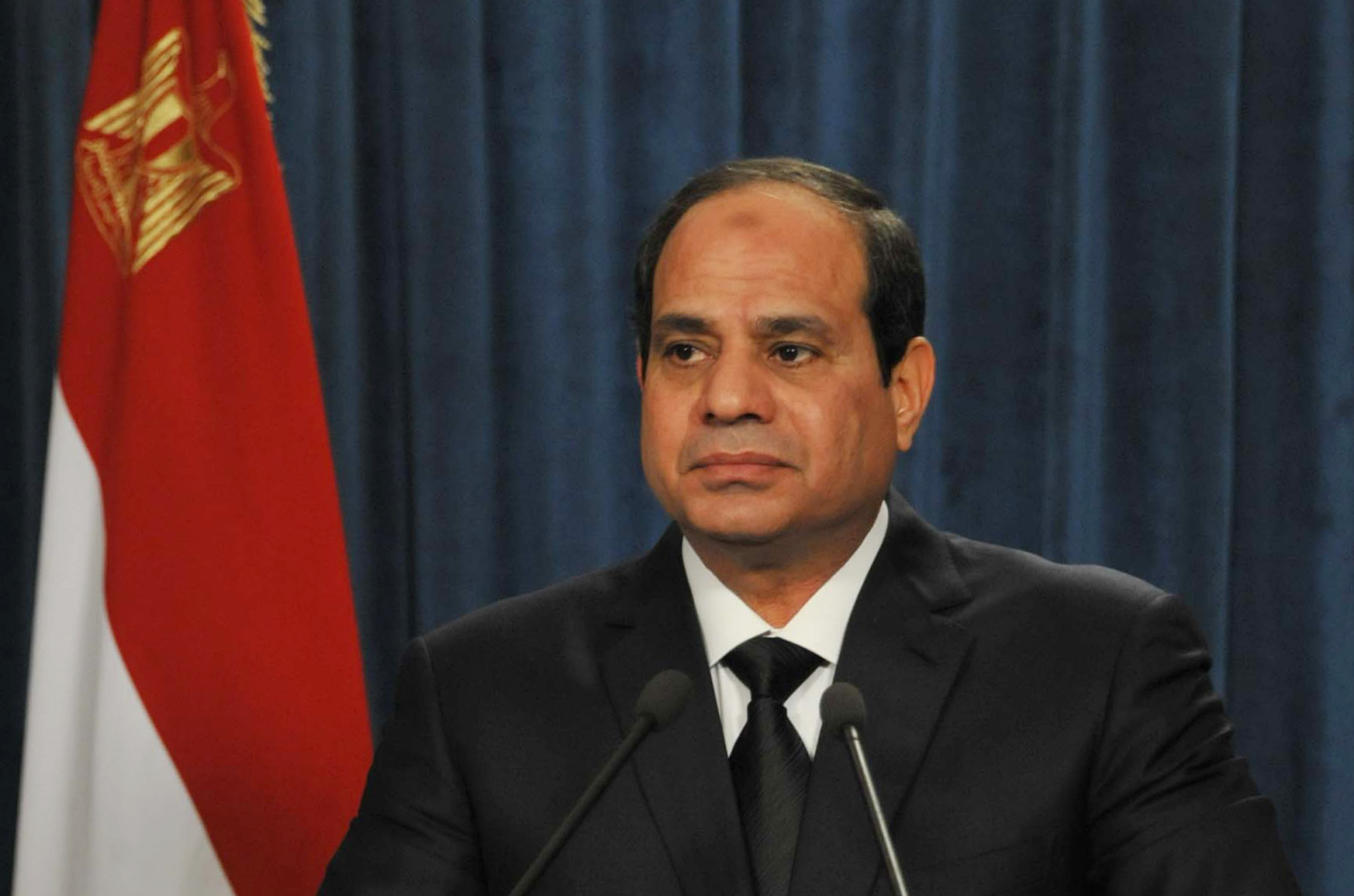Despite Horror in Libya, Experts Warn Against Military Action
Experts argue increased military intervention will only fuel the fire.
— -- As Egypt’s Coptic Christian community mourned the 21 Egyptians beheaded by the Libyan affiliates of ISIS, Egypt’s president called for a U.N. resolution mandating an international intervention in Libya -- a move experts argue may plunge Libya deeper into crisis.
"We will not allow them to cut off the heads of our children,” Egyptian President Abdel Fatah el-Sisi told France’s Europe 1 Radio today. "There is no other choice,” he added. "We have to work together to defeat terrorism."
Sisi referred to the 2011 NATO campaign which launched airstrikes directed at former dictator Moamar Gadhafi’s troops and imposed a no-fly zone over parts of the country, as an “unfinished mission” that "abandoned the Libyan people as prisoners to extremist militias."
In the nearly four years since longtime dictator Moammar Gadhafi was killed in Libya, the country has been plagued by instability giving birth to those opportunistic militant groups nationwide and two rival governments locked in an escalating -– and increasingly complicated civil war.
"The options going forward -- from a U.S. and NATO perspective -- are all bad," said Chris Chivvis, Associate Director, International Security and Defense Policy Center and a Senior Political Scientist at the Rand Corporation.
The U.N.-backed international intervention Sisi called for today doesn’t appear to have the support of Libya, nor its neighbors across the Mediterranean.

"This is the job of the Libyan armed forces currently, what we need now is support from other countries, including arms support,” Libyan military spokesperson Col. Ahmed Al-Mosmari told Ahram Online today, lobbying for an end to an arms embargo. Part of the internationally recognized government based out of Tobruk, Libya, Al-Mosmari stopped short of asking for foreign boots on the ground, but said all options were on the table as Libya plots its next move.
Italian Prime Minister Matteo Renzo played down talk of Italian involvement in a military operation, after initially warning his European allies to “stop sleeping” as the extremists grow stronger just 500 miles south from Italy’s southern tip.
"We've been saying at every level that Libya is out of control for three years and we'll keep doing so,” Renzi told Mediaset.
Adding today, after a meeting with his top ministers: "There was renewed Italian commitment for strong diplomatic action within the framework of the U.N. and support for an urgent initiative at the Security Council to promote stability and peace in Libya.”
Italian and European reticence to commit to any kind of international intervention is a combination of both politics and economics, explained Frederic Wehrey, Senior Associate, Middle East Program at the Carnegie Endowment for International Peace.
"Libya is bad, but they also have Ukraine to worry about,” he said, questioning the details of the unlikely UN-backed force, where it would deploy and who would foot the bill.

“It is not for today to consider any contribution of the European Union to any sort of military action," EU High Representative for Foreign Affairs and Security Policy, Federica Mogherini made clear to reporters in Madrid. "Daesh is a threat to the entire country, to all Libyans and that will require a joint action to face the threat in Libya," she added, saying she would discuss possibilities with both the United States and Egypt later this week.
But regardless of leadership, any kind of military action aimed at ISIS, Wehrey said, would likely add oil to the domestic fire already blazing –- not help extinguish it. For example, each side could use the threat to take advantage, expanding the target set to include political opponents.
Experts say the key is to establish a ceasefire and a unity government but the means to those ends remain murky as the battlefield lines continue to blur. Though cautious, Wehrey puts his money on the U.N.-brokered peace talks that kicked off in Geneva last month but success depends on keeping pragmatic players from all sides at the table.
“Ending the civil war must be first and foremost -- but the question is how do you solve the terrorism problem without stressing existing political fissures? You don’t want to empower the militias –- you don’t want to take sides because that could derail the democratic transition.”
He added, “the risk of failure [of an international military intervention] is very, very high."